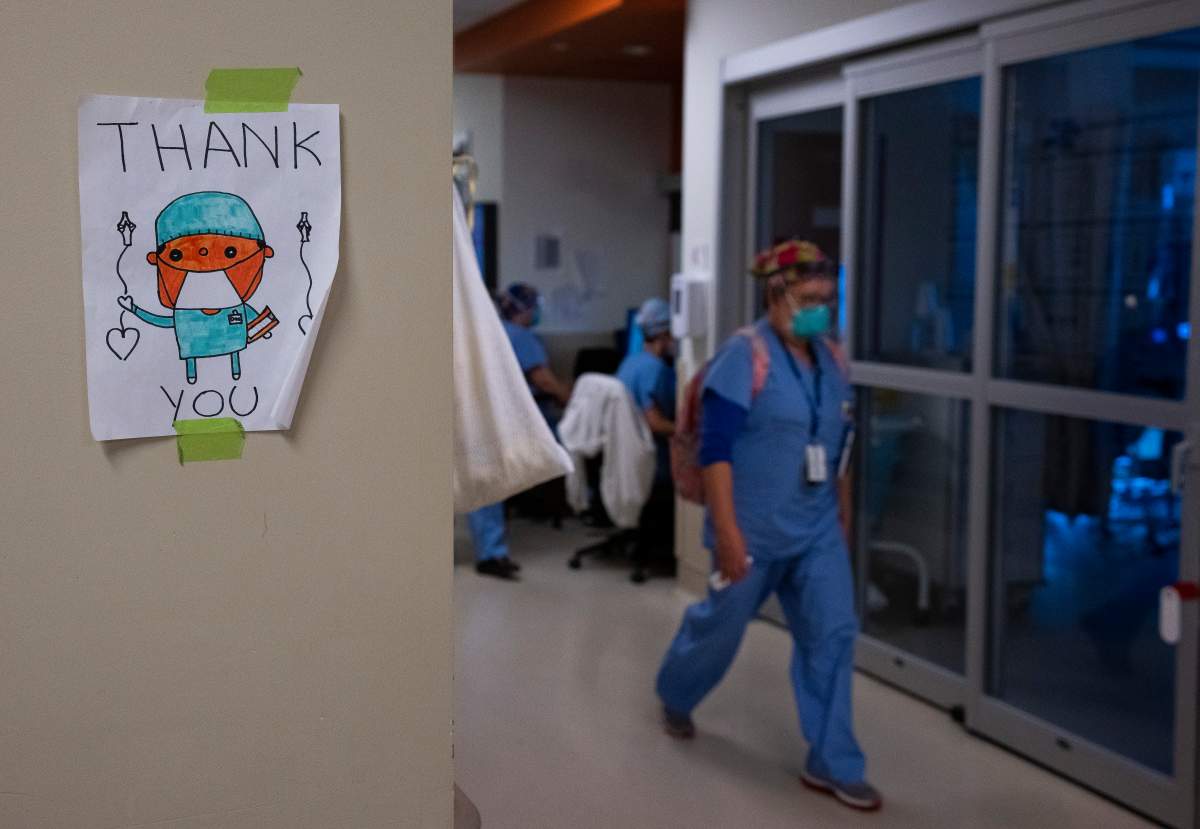Medicine is a “profession on the edge” in Saskatchewan, according to a newly-released Saskatchewan Medical Association (SMA) survey of 391 family physicians and specialists.

“The survey reflects what I have been hearing from many physicians — that they have been working harder during the pandemic and their mental health has suffered,” SMA President Dr. Eben Strydom said in a press release of the February, 2022 survey.
“The results are worrisome. Physicians need supports now more than ever as the pandemic is still with us.”
Respondents were asked to compare their mental health now to how it was before the pandemic.
About 49 per cent said it was worse while 17 per cent said it was much worse. Thirty per cent said it was about the same.
Meanwhile, 57 per cent reported that they’re now working more than they were prior to the pandemic, with 18 per cent reported working less. Seventy-four per cent of respondents reported feeling “less satisfied” with their profession than they were pre-pandemic.
The survey suggests that increased workload and decreased level of satisfaction may have more doctors contemplating changing their career paths.
Fifty-five per cent said they plan to reduce clinical hours over the next two years. Just 23 per cent said the same in a 2020 survey.
Similarly, while five per cent respondents in 2020 said they planned to retire in following two years, that number jumped to 19 per cent this year.

Get breaking National news
“Potential increases in retirement rates and reduction in clinical hours may create additional challenges around access to timely care delivery during the post-pandemic recovery period,” a report on the survey reads, “given the initial provincial (and national) focus on strengthening patient attachment and reducing surgical wait lists.”
“Saskatchewan’s physicians have spoken, and they are saying that medicine has been affected by the duration and persistence of the pandemic, and its impacts on the health system,” Strydom added in the SMA release.
The majority of respondents also said they felt they weren’t consulted enough as the province developed and rolled out its pandemic response.
Asked about general pandemic concerns, 76 per cent of respondents said respondents identified they saw “a lack of physician voice in the pandemic response”.
Forty-two per cent also identified “poor communication” and “feelings of less connectivity to their colleagues” as concerns.
“Physicians feel their expertise and advice has not been valued during the pandemic,” Strydom wrote.
“Health leaders should listen to physicians, implement policies and procedures that provide optimal care for both their COVID and non-COVID patients, strengthen channels of communication, and foster collegiality among health care workers.”
Speaking at the Saskatchewan legislature Wednesday, Premier Scott Moe called the survey “concerning” but said the province has “worked closely” with Saskatchewan physicians over the past two years and that their voices “are being heard”.
“What we are trying to do in the short term is augment and support our healthcare workers in any way we can,” he said.
“That’s by bringing in a number of contract nurses. We have our plan with respect to how we’re going to train, recruit, retain and incentivize additional nurses.”
Moe also touted plans to increase the number of seats in nursing education programs in Saskatchewan, hire more continuing care aides and create a dedicated physician recruitment agency.
Asked about competing with other jurisdictions for health-care workers, Moe said that he thinks Saskatchewan has an advantage.
“Nowhere is seen as more attractive than Saskatchewan,” he said.
“That might be the question to pose to other provinces, is how are you going to compete with this province when it comes to recruiting and retaining health-care workers?”
He acknowledged, though, that while Saskatchewan salaries and wages “compare well” to the western Canadian average but that more incentives may be needed moving forward.
Opposition Leader Ryan Meili, though, called the trends seen in the survey a “Saskatchewan specific issue”.
“The reason that the disrespect that doctors received throughout the pandemic has been particularly striking in this province ” he said.
“What really stood out to me is that 76 per cent of doctors who answered that survey said their number one issue was that the belief or feeling that their voice didn’t matter in the pandemic response.”









Comments
Want to discuss? Please read our Commenting Policy first.